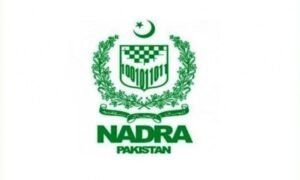Ramadan is a holy month in Islam where Muslims observe fasting from dawn to dusk. During this time, it is recommended to eat a balanced and healthy diet that provides the necessary nutrients for the body to function properly during the fasting period.
Fried and spicy foods can be heavy and difficult to digest, especially during Ramadan when the body is adjusting to the change in eating patterns. Consuming too much fried and spicy food can also lead to indigestion, bloating, and other digestive issues.
Health Expert Dr Munaza Hassan Tuesday urged people to pay close attention to their diet, as the disruption of their regular diet and eating patterns during the month could cause some discomfort and heighten food sensitivities, specifically when eating certain types of foods high in sugar or fat.
Which foods are to be avoided in Ramadan?
Talking to a Private news channel, it is generally advisable to avoid, or at least limit, some types of foods during Ramadan including fried and fatty foods, such as fried potato and samosa these foods contain a high percentage of the daily recommended fat and sodium intake, so eating them frequently may increase the impact of fatigue and exhaustion caused by fasting in Ramadan.
She said foods that contain high amounts of salt, such as pickles. Sodium can dehydrate the body and impact its ability to absorb fluids.
Dr Munaza further informed that foods that contain large amounts of sugar are often high in calories but poor in nutritional value. While these foods provide the body with instant energy, the energy is generally short-lived.
Foods that contain chocolate or any other source of caffeine. Caffeine is a diuretic and can cause the body to lose fluids, salts and other important minerals needed during the day, she added.
Final Verdict
It is, therefore, advisable to avoid fried and spicy food items during Ramadan and opt for lighter and healthier options such as fruits, vegetables, whole grains, and lean protein sources. These foods provide the necessary nutrients and energy to sustain the body during the fasting period and help maintain good health throughout the month.
It is also important to stay hydrated by drinking plenty of water and other fluids during non-fasting hours to prevent dehydration and other health issues. Overall, it is essential to maintain a healthy and balanced diet during Ramadan to ensure optimal health and well-being.
Want to add something to the story? Do so in the comments section below.

Afsheen Gohar believes in the power of clear, straightforward writing. Her blog posts tackle everyday topics with relatable insights and easy-to-follow advice. With a conversational style, she makes complex subjects feel understandable. She’s dedicated to sharing knowledge and empowering readers to take action. Find her latest posts on trending in social.











